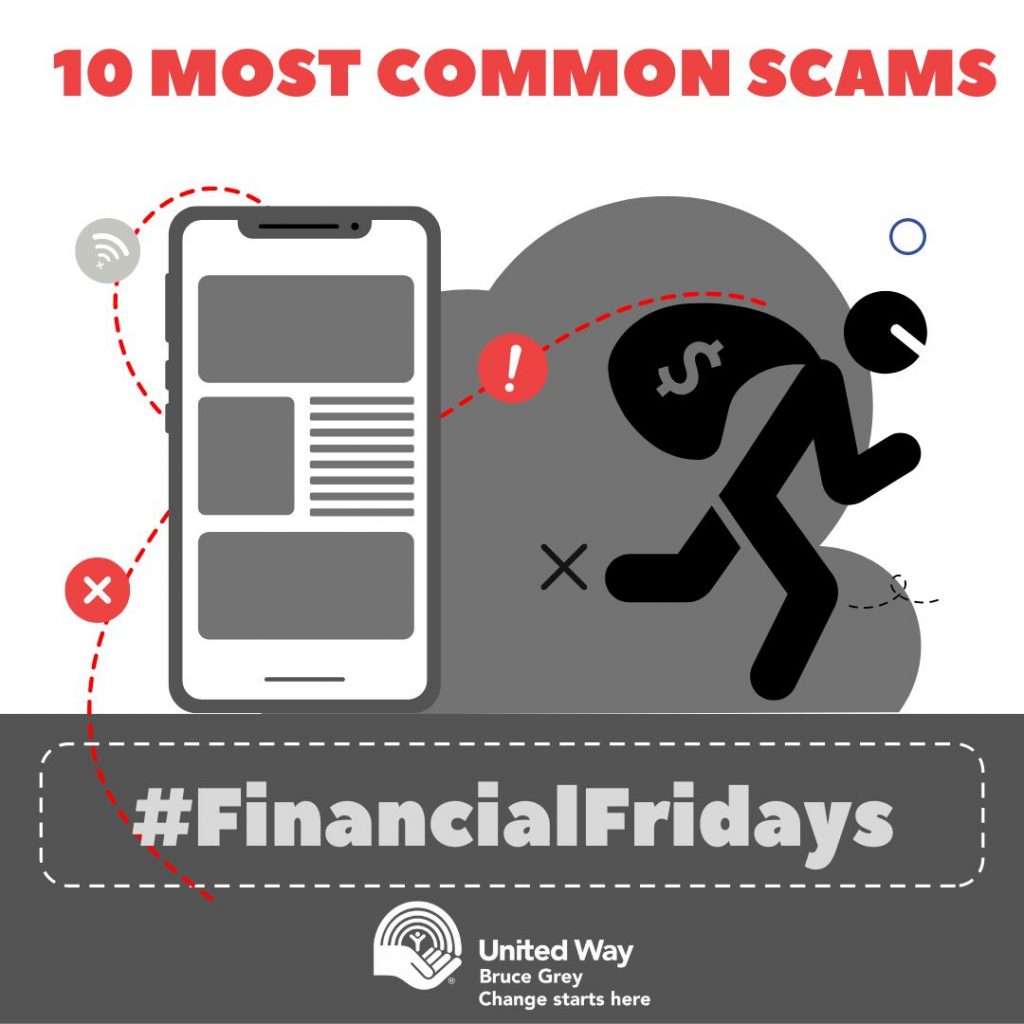#FinancialFridays: 10 Most Common Scams

Wow, the number of scams I get by email is overwhelming. In the past, I gave up on my older email addresses because of the number and persistence of scam emails. That is one option but not a great one. Then I had to update my email on all the legitimate things in my life, ie. my accounts for my bills, family chats, social media, etc. This is a huge frustration.
Insauga.com, a website covering news and information in Mississauga, Brampton, Halton Region, Hamilton, Durham Region, and the Niagara Region, recently outlined and described the top 10 most common scams in 2023 in Canada. I found it really helpful and realized I see these scams happening all around me all the time. Information is armour!
Here is some of that article:
Here are the 10 most common frauds of 2023:
- Identity fraud tops the list with more than 11,000 reports last year. Fraudsters use personal information to apply for government benefits, credit cards, bank accounts, cell phone accounts or even take over social media and email accounts.
- Service scams are where a fraudster sends emails claiming to be a service provider. The emails may ask you to call a phone number to avoid “auto-renewal” or to cancel a payment. This is a service scam, the Anti Fraud Centre warns.
- The personal information scam is where culprits call people claiming to be from the government. They ask for personal information or ask the victim to buy gift cards.
- Phishing involves criminals using tactics, such as website spoofing or offers, to trick people into giving personal information or clicking on links.
- The investment scam involves solicitation for investments into false or deceptive investment opportunities. These opportunities falsely promise higher-than-normal returns. However, investors lose most or all their money.
- The bank investigator, number six on the list, has several variations. Often they involve a caller who claims to be from a bank and asks for help catching a bank employee. The employee has supposedly been stealing money. In another variation, the investigator is helping you resolve suspicious transactions on your bank account.
- In the merchandise fraud scammers create fake ads online. The sites could be classified ads, resale sites, or fake company websites. Two people were recently charged in connection to fake ads on the Facebook marketplace.
- Extortion has become a huge issue in Peel Region, particularly in the South Asian community. Extortion happens when someone unlawfully obtains money, property or services from a person, entity, or institution through coercion. In some cases, scammers claim to be from law enforcement agencies, including the RCMP.
- Job scammers, sometimes use names of real companies in Canada. The fraudsters offer a freelance job to “boost” products, apps or videos using software created by the fraudsters. After the victim installs the software and creates an account, they receive “orders” or “tasks” they have to complete. Victims might receive a small payment or commission in order to convince them that the job is legitimate.
- Finally, counterfeit merchandise fraud has scammers creating websites that have the same look and feel as a legitimate manufacturer to sell products at big discounts. The products are far inferior and could pose significant health risks. For example, counterfeit jackets have been found to contain bacteria, fungus, and mildew.
Some tips to avoid scams: create strong passwords for each of your accounts, don’t accept or send money to a third party, don’t trust information on your phone’s display, don’t provide personal or banking information on demand, and don’t click on links from unsolicited emails or texts.
For more information on frauds, how to avoid them, and report them, visit the Canadian Anti Fraud Centre website.
10 of the most common scams in 2023 in Canada | insauga
Thank you, insauga.com!

